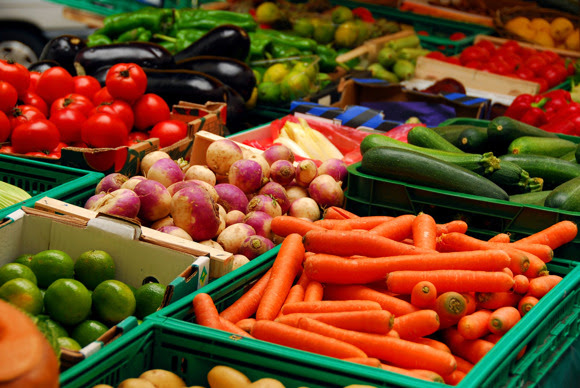OECS Commission moving towards a Virtual Marketplace

Food Security is a top priority!
May 6, 2020 – Plans for a regional virtual marketplace continue to be a key priority for the Organisation of Eastern Caribbean States. The COVID-19 pandemic revealed many weaknesses in the region’s traditional food systems, presenting a unique opportunity to move towards greater sustainability and food and nutrition security. A common regional market will serve to promote better food security by reducing the reliance on imports from international food sources.
The OECS Commission alongside its Member States is working to address the barriers to intra-regional trade to realize this goal as part of the OECS COVID-19 response. Some of the barriers include transportation, information sharing and management, and Sanitary and Phytosanitary Measures (SPS). The virtual marketplace is meant to strengthen the economies of Member States by encouraging diversification through greater investment in the agriculture sector and promoting a larger circulation of capital in the region. Saint Vincent and the Grenadines Port
Saint Vincent and the Grenadines Port
Director General of the OECS Commission, Dr. Didacus Jules said the Commission is excited by the progress being made in food security for the region.

“Reducing intra-regional trade barriers is an ongoing effort by the Commission. The intention to move forward with the virtual marketplace is built on the successes of previous efforts at addressing the challenges of intra-regional trade and deepening integration through a coordinated effort.”
Given that market forces are largely driven by the private sector, the Commission and Member States are responsible for providing this sector with the necessary information to become the hub for the OECS intra-regional trade. This virtual marketplace is intended to connect the private sectors across the region, providing information on location, products, supplier details and potential suppliers. The platform may also serve as a driver of change towards better nutrition in the sub-region with the wider availability of fresh produce spurring behavioural change to more nutrient dense food instead of energy dense nutrient poor foods.
Cooperation among Member States for the COVID-19 food response are on three fronts:
- Collaboration to develop national plans through sharing information and best practices
- Working with Member States on a basket of harmonised measures that include standards, transportation, duties and charges levied on the movement of agricultural produce and agro-processed goods.
- Renewed focus on intra-regional trade in food items among Member States.
The next phase of advancing the virtual marketplace includes the refinement and operationalisation of the trade platform, engaging the private sector, formalising shipping arrangements, and working with Member States to coordinate production and other internal processes required to successfully trade.





